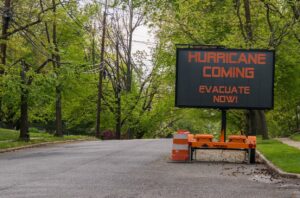Nothing warms you up on a cold winter’s night quite like a fireplace. Though gas fireplaces have become safer in the last 20 years with shut-off devices and oxygen depletion sensors, homeowners still need to practice safety procedures, but when they should be worried?
We spoke with Paul Pirro from PSE&G’s Appliance Service to learn the signs that indicate a leak in your gas fireplace and the absolute don’ts to help keep your home and everything in it safe.
Gas fireplace leak symptoms you should not ignore
-
- The fireplace does not light.
-
- Your home methane detectors sound.
-
- Your carbon monoxide detectors sound.
-
- A stench of “rotten eggs” or a “gas odor” permeates the home.
-
- You can hear a hissing sound near your fireplace.
Gas fireplaces use very little natural gas compared to other gas appliances, so you can have an issue without the presence of one of the gas fireplace leak symptoms, such as that rotten eggs or sulfur odor. Your home methane detector is your best friend in this situation. Listen to it and get out of the house. When in doubt, call 911 or your local utility company’s emergency line, and always do so after leaving the house.
It should be noted that it is normal for a gas fireplace to smell a bit when it’s first turned on in a while, but it should dissipate after a few minutes. If you at all worry, get out of the house. Also, if you smell gas when your fireplace isn’t on, get out. When in doubt, always get out.
Carbon monoxide gas also a dangerous gas, and it’s odorless and colorless. Some people don’t realize that they’re suffering from carbon monoxide poisoning until they become very ill. Physical symptoms, such as respiratory problems, may occur immediately or gradually. Carbon monoxide detectors can alert occupants of the presence of deadly carbon monoxide levels that can be present without anyone knowing. When a gas fireplace is being used, carbon monoxide detectors can sense a potential carbon monoxide condition that can be created when fuel burning equipment malfunctions.
What do you do if you suspect a gas leak in your home?
-
- Immediately exit the building and move at least 350 feet away.
-
- Call 911 or call your gas company (such as PSE&G).
Both are available 24/7/365 and will come to your home. PSE&G will arrive within 60 minutes of the call, often sooner.
Absolute don’ts when it comes to a gas leak

We’re not exaggerating. Protect life and limb by adhering to these important tips:
-
- Don’t use electronic devices inside. That includes your cell phone. Only call 911 or your service company after you’ve moved away from the danger area.
-
- Don’t turn the lights on or off, doorbells, or appliances. Sparks can create combustion or an explosion.
-
- Don’t start cars.
-
- Don’t light a match, smoke, or vape.
-
- Don’t try to find the source of the odor.
Get out, assess the situation, and call the appropriate authorities.
These important do’s and don’ts also apply to detect a gas leak in your home, including gas burning appliances including hot water heaters, ovens, and dryers.
Learn more about your home
Homeownership can be hard, but it doesn’t have to be. The vipHome.app can help. In less than four minutes, enjoy a new way to manage your home. Simply download the app, register your home, and enjoy a simplified homeownership experience. Get it today!






